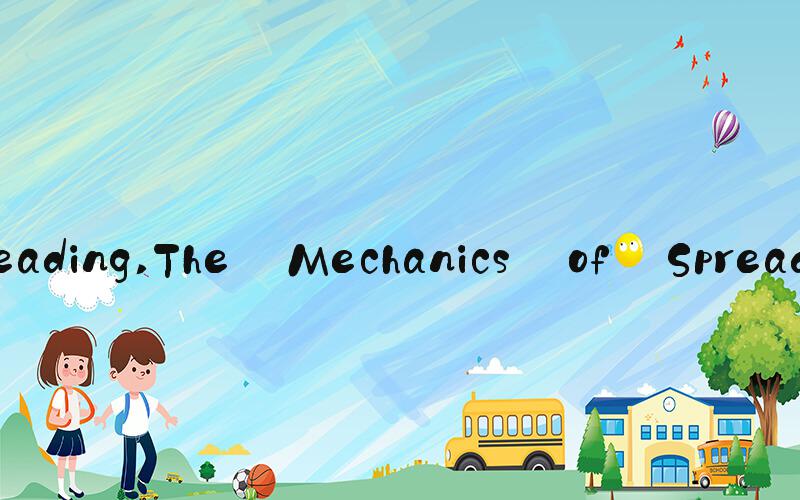
 Spreading: How Information Moves in Today's World
Spreading: How Information Moves in Today's WorldWith the rise of social media and the internet, information travels faster and farther than ever before. From news stories to viral memes, information can spread rapidly across the globe in a matter of seconds. But how exactly does information spread, and what impact does it have on society as a whole?
The Mechanics of SpreadingAt its core, spreading is all about connectivity. The more people that are connected, the more opportunities there are for information to spread. Social media platforms like Facebook and Twitter allow people to instantly share content with their networks of friends and followers. As these networks grow, the potential for the content to go viral increases exponentially.
But it's not just about the size of the network. The structure of the network also plays a crucial role in how information spreads. Research has shown that networks with a high degree of clustering - where people are closely connected with others within a specific group - are more resistant to the spread of new information. On the other hand, networks with a high degree of "bridging" - where people have connections to diverse groups outside of their immediate circle - are more susceptible to new information.
The Impact of SpreadingThe effects of spreading can be both positive and negative. On one hand, spreading can help to raise awareness about important issues and bring people together around a common cause. Social media has been instrumental in spreading information about the Black Lives Matter movement, for example, and has sparked important conversations about racism and social justice.
On the other hand, spreading can also be used to spread false information and propaganda. The proliferation of "fake news" has become a major problem in recent years, with misinformation being spread widely across the internet. This can have serious consequences, from influencing political elections to inciting violence.
The Ethics of SpreadingGiven the power of spreading, it's important to consider the ethical implications of sharing information. Is it our responsibility to fact-check before sharing a post or article? Should we be mindful of how the information we share may affect others, particularly if it is controversial or divisive?
Ultimately, the responsibility lies with each of us as individuals. We have the power to shape the conversation - and the world - through the content we choose to share. By being mindful of the impact of spreading and taking a more critical approach to the content we consume and share, we can help to create a more informed and responsible society.
The Future of SpreadingAs technology continues to evolve, it's likely that the way we spread information will continue to change. The rise of virtual and augmented reality, for example, may offer new ways for people to engage with and share content. It will be interesting to see how these new technologies will shape the way we consume and spread information in the years to come.
One thing is certain: spreading is here to stay. Whether it's for better or for worse, the ability to share information with others has become a fundamental part of our lives. By understanding the mechanics, impact, ethics, and future of spreading, we can all play a more informed and responsible role in the information age.
